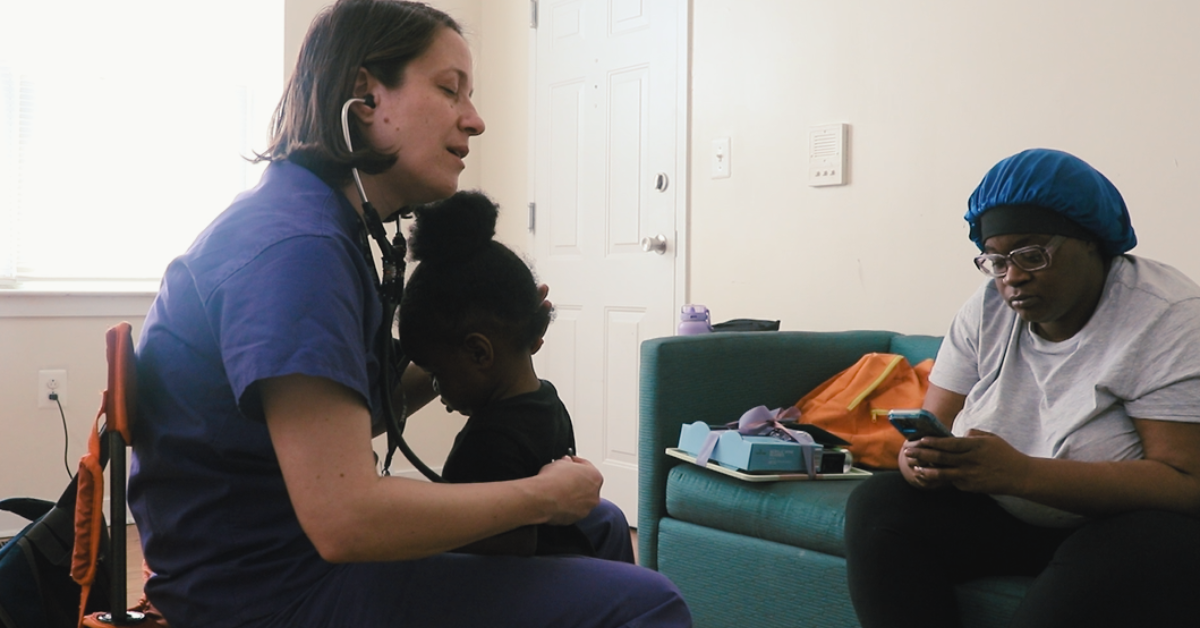
When most people think of holistic nursing care, they think of the “mind, body, spirit” model of care, and not necessarily of legal, transportation, and other social needs of patients. These needs are just as prevalent as physical health concerns in populations receiving community nursing care, and nurses who serve them are faced daily with clients who can’t attend health visits due to transportation, who can’t address their asthma because they can’t change their living conditions, or who have lost a job or housing opportunity due to discrimination.
The Family Advocacy and Integrated Resources Project (FAIR) supports nurses to refer home-visited families in Philadelphia for free legal counseling and complex case navigation. Additionally, the FAIR project can support families with emergency financial needs, such as a heater, replacement refrigerator, safe bed for their child, utility restoration fees, rent arrears, pest control, or transportation to medical and legal appointments.
In their usual line of work, nurses often find out about clients’ legal and case management needs, but are limited to a referral to community legal services, limited case management from a managed care organization, referrals to similarly overwhelmed social workers, or attempting to support families with case management or tangible resources themselves. The toll of trying to provide these additional resources contributes to nurse burnout. Nurses who feel personally responsible for attending to their clients’ many needs, who lack a sense of community, feel conflicting values, and are subject to work overload, are more prone to burnout.
Giving nurses an answer to those client needs they cannot attend to themselves gives them a sense of agency in what would otherwise be a recipe for moral distress. Moral distress is the internal conflict that arises when someone sees a problem that has a ‘right’ or moral solution but is unable to act due to a lack of knowledge or limitations on their resources or actions. Holistic care of the client gives nurses an answer to moral distress.
When a nurse is able to refer a client to free, trauma-informed legal services that can address their poor housing conditions, conflict with a landlord, discrimination at work or school, access to benefits, they are able to remove the burden of client needs that are outside their knowledge base and scope of practice, but which are necessary to the client’s health and well-being. When the nurse personally knows the provider of those services and can facilitate a warm introduction, where they can trust that the client’s needs will be met, it only increases the nurse’s ability to provide holistic care and reduces their risk of burnout. The FAIR project fulfills this need for multidisciplinary care for clients and reduces nurses’ moral distress.
Read More About the FAIR Project
FAIR's goal is to provide families with comprehensive support that addresses their immediate needs and long-term well-being, ensuring children and parents thrive together.
LATEST NEWS
10 February 2026
Time flies! In the summer of 2016, we launched our first-ever Community Action Day (CAD) to bring the fa...
23 October 2023
In February 2021, the National Nurse-Led Care Consortium (NNCC) partnered with this Centers for Disease...
STAY CONNECTED TO NURSE-LED CARE

